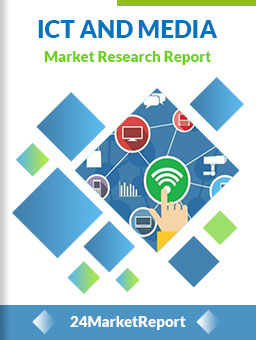
Download FREE Report Sample
Download Free sampleMARKET INSIGHTS
Global Data Privacy Consulting Service market size was valued at USD 2.51 billion in 2024. The market is projected to grow from USD 3.12 billion in 2025 to USD 11.02 billion by 2032, exhibiting a CAGR of 24.1% during the forecast period.
Data privacy consulting services encompass specialized advisory solutions that help organizations navigate complex regulatory landscapes and implement robust data protection frameworks. These services include compliance assessments, privacy program development, data governance strategy, and incident response planning. Core offerings are segmented into Data Privacy Compliance Consulting, Data Privacy Managed Services, and other specialized solutions tailored to industry-specific requirements.
The market's exponential growth is driven by escalating regulatory pressures such as GDPR and CCPA, with global privacy fines exceeding USD 3 billion cumulatively since 2018. However, emerging technologies like AI-driven data mapping tools are enabling consultancies to deliver more scalable solutions. Key players like IBM and PwC captured 28% combined market share in 2023 through strategic acquisitions, including IBM's purchase of Truvantis' privacy practice. The sector is also seeing increased demand from healthcare and financial services verticals, which accounted for 47% of total service adoption last year.
Stringent Global Data Protection Regulations Accelerate Demand for Consulting Services
The implementation of rigorous data privacy laws worldwide has become a primary catalyst for market growth. With over 130 countries now having data protection legislation in place, organizations face increasing pressure to comply with frameworks like GDPR, CCPA, and newly emerging regulations in developing economies. The financial penalties for non-compliance can be staggering – reaching up to 4% of global revenue for GDPR violations. This regulatory landscape has created an urgent need for specialized consulting services that can navigate complex compliance requirements while minimizing operational disruption to business processes.
Exponential Data Growth and Cloud Migration Fuel Privacy Consulting Needs
To know more about market statistics, Download a FREE Sample copy
Global data creation is projected to exceed 180 zettabytes by 2025, with enterprise cloud adoption rates surpassing 90% across major industries. This massive digital transformation has introduced unprecedented privacy risks across data lifecycle management. Consulting firms are seeing heightened demand for services that address cloud-specific privacy challenges, including cross-border data transfer mechanisms, vendor risk assessments, and data localization strategies. The financial sector alone has increased privacy consulting budgets by 42% since 2020 to manage these complexities while maintaining customer trust.
Emerging technologies are creating new dimensions in privacy requirements. Artificial intelligence implementations now account for 28% of privacy consulting engagements as organizations grapple with ethical data usage, algorithmic transparency, and bias mitigation – all while trying to maintain competitive advantages.
➤ The average organization now manages data across 15 different jurisdictions, making global privacy program development one of the fastest-growing consulting services.
High Implementation Costs Create Barriers for SME Adoption
While enterprise organizations routinely invest in comprehensive privacy programs, small and medium businesses often find consulting services cost-prohibitive. A full-scale privacy compliance project can require between $250,000-$1.5 million in initial consulting fees, with ongoing costs for program maintenance. This pricing structure disproportionately impacts organizations with limited compliance budgets, causing many to pursue piecemeal solutions that may not adequately address regulatory requirements or security risks.
Other Restraints
Shortage of Qualified Professionals
The global shortage of certified privacy professionals exceeds 500,000 according to industry estimates. This talent gap drives up consulting rates and creates implementation bottlenecks, particularly for specialized services like data protection impact assessments which require both technical and legal expertise.
Cultural Resistance to Change
Many organizations struggle with internal resistance when implementing privacy initiatives that require workflow changes. Consulting projects frequently encounter pushback from departments reluctant to alter established processes, resulting in extended timelines and diluted program effectiveness.
Rapid Technological Evolution Outpaces Existing Privacy Frameworks
The velocity of technological innovation presents ongoing challenges for privacy consultants. Emerging applications like generative AI, IoT ecosystems, and decentralized Web3 platforms introduce novel data processing scenarios that existing privacy frameworks don't adequately address. Consultants must continually adapt methodologies while advising clients on privacy-by-design approaches for technologies that lack established governance models. This dynamic environment creates uncertainty for businesses seeking long-term privacy strategies.
Evolving Regulatory Landscape
With major privacy laws undergoing frequent updates and new regulations emerging annually, maintaining compliance requires continuous program adjustments. The average multinational corporation now spends approximately 300 additional consulting hours per year just tracking regulatory changes across operational territories.
Measuring Program Effectiveness
Quantifying return on investment for privacy initiatives remains challenging, with only 35% of organizations reporting confidence in their ability to measure privacy program performance. This metric gap complicates budget justifications and creates friction in client-consultant relationships.
Privacy-Enhancing Technologies Create New Consulting Verticals
The emergence of advanced privacy technologies like homomorphic encryption, differential privacy, and confidential computing has opened new service offerings for consultants. Implementation advisory services for these solutions are growing at 62% annually as organizations seek to balance data utility with protection. Consulting firms that develop expertise in technical privacy controls are gaining competitive advantage, particularly in sectors handling sensitive data like healthcare and financial services.
Expansion into Operationalizing Privacy Programs
As privacy matures from compliance exercise to strategic function, demand has shifted toward operational implementation services. Organizations increasingly seek consultants who can embed privacy into business processes through employee training programs, technology integrations, and ongoing monitoring systems. This evolution has created a $3.2 billion market for operational privacy consulting that is projected to grow faster than traditional compliance advisory services.
Industry-Specific Specialization Creates Differentiation
Consulting firms are finding success by developing deep vertical expertise in sectors with complex privacy requirements. Healthcare privacy consulting now accounts for 22% of market revenue due to stringent HIPAA regulations and sensitive patient data handling. Similar opportunities exist in financial services, education, and government sectors where data protection requirements intersect with industry-specific compliance mandates.
Data Privacy Compliance Consulting Dominates the Market Due to Growing Regulatory Requirements
The market is segmented based on type into:
Data Privacy Compliance Consulting
Subtypes: GDPR, CCPA, HIPAA, and other regulatory frameworks
Data Privacy Managed Services
Subtypes: Continuous monitoring, incident response, and advisory services
Risk Assessment & Gap Analysis
Privacy Impact Assessments
Others
Subtypes: Training and awareness programs, data mapping services
IT Sector Leads Market Adoption Due to High Data Sensitivity and Regulatory Scrutiny
The market is segmented based on application into:
IT & Telecom
Banking, Financial Services, and Insurance (BFSI)
Healthcare
Retail & E-commerce
Government & Public Sector
Others
Large Enterprises Account for Significant Share Due to Complex Data Ecosystems
The market is segmented based on organization size into:
Small & Medium Enterprises (SMEs)
Large Enterprises
Cloud-based Solutions Gaining Traction for Scalability and Cost-effectiveness
The market is segmented based on deployment mode into:
On-premises
Cloud-based
Hybrid
Data Privacy Leaders Expand Capabilities to Address Evolving Regulatory Demands
The global data privacy consulting services market features a dynamic competitive environment, blending established consulting firms with specialized privacy technology providers. IBM Security emerges as a dominant force, leveraging its enterprise-grade data protection solutions and global consulting network to capture significant market share. The company's integration of AI-driven privacy tools with consulting services has proven particularly valuable for multinational corporations navigating complex compliance requirements.
PwC and EY maintain strong positions through their comprehensive advisory ecosystems, combining traditional consulting expertise with specialized privacy practice groups. These firms benefit from established client relationships across multiple industries and the ability to scale privacy programs alongside broader digital transformation initiatives.
Specialized providers like TrustArc and 2B Advice are gaining traction by focusing exclusively on privacy compliance, offering niche expertise in regional regulations such as GDPR and CCPA. Their technology-enabled consulting approaches allow for more cost-effective solutions for mid-market organizations, creating competitive pressure on larger firms.
Meanwhile, KPMG and Deloitte are responding to market demands through strategic acquisitions of boutique privacy firms and expanded training programs for their consulting teams. This dual approach of organic capability building and targeted M&A activity demonstrates the increasing value placed on specialized privacy knowledge in the professional services sector.
IBM Security (U.S.)
PwC (U.K.)
EY (U.K.)
TrustArc (U.S.)
KPMG (Netherlands)
Protiviti (U.S.)
FTI Technology (U.S.)
Truvantis (U.S.)
Secureworks (U.S.)
PA Consulting (U.K.)
DEKRA (Germany)
2B Advice (Germany)
Data Privacy Professionals (Netherlands)
Crowe LLP (U.S.)
Forcepoint (U.S.)
TV Rheinland (Germany)
Kroll (U.S.)
RSM (U.S.)
The global data privacy consulting market has witnessed exponential growth due to escalating regulatory requirements worldwide. With over 130 countries now implementing data protection laws, organizations face mounting pressure to comply with complex frameworks such as GDPR, CCPA, and emerging AI governance policies. The financial impact of non-compliance has become severe, with GDPR fines surpassing $3 billion cumulative since 2018, creating urgent demand for expert guidance. Consulting firms are expanding their service portfolios to include comprehensive compliance roadmaps, privacy impact assessments, and cross-border data transfer solutions to address these challenges.
Cloud Migration Security Imperatives
As enterprises accelerate cloud adoption, with 85% of organizations now using multiple cloud platforms, data residency and sovereignty concerns have intensified. Privacy consultants are developing specialized frameworks for multi-cloud environments, helping clients navigate conflicting regional regulations while maintaining operational flexibility. This has led to a 37% year-over-year increase in demand for cloud-specific privacy assessments, particularly in financial services and healthcare verticals where data sensitivity is highest.
The integration of artificial intelligence into privacy consulting services represents a transformative market shift. Advanced tools now automate complex processes like data discovery and classification, reducing manual compliance costs by 40-60% for enterprise clients. Privacy tech stacks incorporating machine learning can continuously monitor regulatory changes across jurisdictions, with leading consultancies reporting 200% faster update cycles for client compliance programs. However, the rapid emergence of generative AI applications has introduced new challenges in data governance, creating fresh demand for consulting expertise in AI ethics and algorithmic transparency frameworks.
North America
North America dominates the global data privacy consulting market, accounting for over 40% of the total revenue share in 2024. The U.S., with its stringent regulatory framework including CCPA (California Consumer Privacy Act) and sector-specific laws like HIPAA, drives significant demand for compliance expertise. Additionally, Canada’s PIPEDA (Personal Information Protection and Electronic Documents Act) has spurred corporate investments in privacy advisory services. High-profile data breaches, such as the 2023 T-Mobile incident affecting 37 million customers, have intensified enterprise focus on risk mitigation. While large enterprises lead adoption, SMBs are increasingly engaging consultants to navigate complex requirements. The market’s maturity is reflected in the presence of key players like IBM and TrustArc, which offer end-to-end governance solutions. However, resource-intensive compliance processes and rising service costs pose challenges for smaller firms.
Europe
Europe remains a critical market, shaped by the GDPR (General Data Protection Regulation), which continues to set global benchmarks. The region contributes approximately 30% of market revenue, with Germany, France, and the UK as primary demand drivers. Stricter enforcement—evidenced by €1.3 billion in GDPR fines levied in 2023—has compelled organizations to prioritize consultancy services for audits and compliance strategies. The EU’s Data Governance Act (DGA) further expands service opportunities in cross-border data flows. Local firms favor bundled offerings combining privacy impact assessments (PIAs) and DPO (Data Protection Officer) outsourcing, with KPMG and PwC leading service provision. Although SMEs initially lagged in adoption, escalating penalties have accelerated engagement. Nevertheless, fragmentation in national implementations of GDPR and recessionary pressures temper short-term growth.
Asia-Pacific
APAC is the fastest-growing region, projected to achieve a CAGR exceeding 28% through 2032, fueled by digital transformation and regulatory modernization. China’s Personal Information Protection Law (PIPL) and India’s Digital Personal Data Protection Act (DPDPA) have created urgent compliance needs, particularly in the IT and fintech sectors. Japan and South Korea’s mature markets focus on AI-driven privacy tools, while Southeast Asia grapples with balancing innovation and enforcement. Cost sensitivity drives demand for modular services, with local consultancies like Data Privacy Professionals gaining traction. Despite growth, inconsistency in regulatory rigor—ranging from stringent South Korean penalties to India’s phased enforcement—creates a complex landscape for service providers.
South America
The region exhibits nascent but promising demand, with Brazil’s LGPD (Lei Geral de Proteção de Dados) serving as the legislative cornerstone. Brazil accounts for over 60% of regional market activity, as multinationals and financial institutions seek compliance support. Argentina and Colombia are progressing with similar frameworks, though implementation delays persist. Economic instability and limited in-house expertise heighten reliance on consultancies for gap assessments and employee training. Service providers face challenges in scaling operations due to currency volatility, yet partnerships with legal firms offer pathways to mid-market growth.
Middle East & Africa
MEA’s market is bifurcated: the GCC nations, led by the UAE and Saudi Arabia, are advancing comprehensive data laws (e.g., UAE’s PDPL), attracting global firms like EY and Deloitte. In contrast, African markets remain underserved, though Kenya’s Data Protection Act and South Africa’s POPIA signal gradual maturation. The lack of localized expertise forces organizations to depend on international consultants for foundational privacy frameworks. Oil economies’ cybersecurity investments indirectly spur privacy service demand, while sub-Saharan Africa’s growth hinges on regulatory enforcement capacities. Despite low current penetration, regulatory alignment with global standards positions MEA for long-term expansion.
This market research report offers a holistic overview of global and regional markets for the forecast period 2025–2032. It presents accurate and actionable insights based on a blend of primary and secondary research.
✅ Market Overview
Global and regional market size (historical & forecast)
Growth trends and value/volume projections
✅ Segmentation Analysis
By product type or category
By application or usage area
By end-user industry
By distribution channel (if applicable)
✅ Regional Insights
North America, Europe, Asia-Pacific, Latin America, Middle East & Africa
Country-level data for key markets
✅ Competitive Landscape
Company profiles and market share analysis
Key strategies: M&A, partnerships, expansions
Product portfolio and pricing strategies
✅ Technology & Innovation
Emerging technologies and R&D trends
Automation, digitalization, sustainability initiatives
Impact of AI, IoT, or other disruptors (where applicable)
✅ Market Dynamics
Key drivers supporting market growth
Restraints and potential risk factors
Supply chain trends and challenges
✅ Opportunities & Recommendations
High-growth segments
Investment hotspots
Strategic suggestions for stakeholders
✅ Stakeholder Insights
Target audience includes manufacturers, suppliers, distributors, investors, regulators, and policymakers
-> Key players include IBM, Protiviti, FTI Technology, PwC, KPMG, EY, TrustArc, and Deloitte, among others.
-> Key growth drivers include stringent data protection regulations (GDPR, CCPA), rising cyber threats, and increasing cloud adoption.
-> North America holds the largest market share, while Asia-Pacific shows the fastest growth due to digital transformation.
-> Emerging trends include AI-driven privacy solutions, zero-trust frameworks, and privacy-as-a-service models.

Speak to our Custom Research Team and get the Custom Research in a budget
Custom ResearchFrequently Asked Questions ?
A license granted to one user. Rules or conditions might be applied for e.g. the use of electric files (PDFs) or printings, depending on product.
A license granted to multiple users.
A license granted to a single business site/establishment.
A license granted to all employees within organisation access to the product.
Upto Working 24 to 48 hrs
Upto 72 hrs max - Weekends and Public Holidays
Online Payments with PayPal and CCavenue
Wire Transfer/Bank Transfer
Hard Copy




 Industry Market Size
Industry Market Size SWOT Analysis
SWOT Analysis Industry Major Players
Industry Major Players Revenue Forecasts
Revenue Forecasts Historical and Forecast Growth
Historical and Forecast Growth Profitability Analysis
Profitability Analysis
























